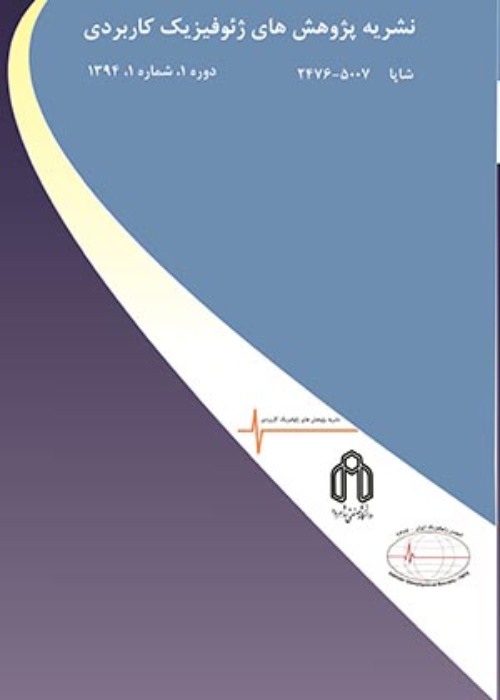Inversion of Rayleigh wave dispersion curves using modified flower pollination algorithm (MFPA) to detect shear wave vvelocity profile
The inversion of the surface wave dispersion curves is one of the practical issues in identifying the subsurface layers and shear wave velocities structures. Shear wave velocity is one of the most important parameters in geotechnical studies that is used to evaluate soil properties, including site effects and seismic microzonation. Typically, surface waves are used to estimate the shear wave velocity. Linear inversion methods are not very reliable due to the nonlinear nature of the problem. With the development of computer sciences and the development of intelligent optimization methods, rapid and easy techniques for inversion of surface waves could be used. In this paper, a new modified flower pollination algorithm (MFPA) for inversion of Rayleigh wave dispersion curves is introduced. In the proposed algorithm in comparison to standard flower pollination algorithm (FPA), the exploration ability of the algorithm is improved.
Methodology and Approaches:
In order to process surface waves and find an adequate shear wave velocity structure, a new hybrid metaheuristic algorithm that adds a dynamic factor to mutation operator of the standard FPA, called MFPA, is applied. In this study, the mutation rate increases gradually from 𝑊𝑚𝑖𝑛 (1/number of flowers) to 𝑊𝑚𝑎𝑥 (1/ number of subsurface layers) as the number of iterations is increased. The MFPA approach could accelerate the convergence speed in comparison to the standard FBA. The code of the MFPA inversion method has been written in MATLAB environment. Then, the proposed technique has been tested on a synthetic dataset. To more explore the reliability of the applied method,10 percent noise has also been added to the synthetic dataset. The results of synthetic dataset show the capability of the MFPA technique in the absence and presence of noise. For further evaluation of the proposed method, the MFPA has been applied on an actual dataset for geotechnical assessment in an area in the city of Tabriz, northwest of Iran. The results of the experimental data indicate a three-layer model that is in a good agreement with the geological evidence of the study area.
In this study, a new surface wave inversion algorithm, i.e. MFPA is proposed. Then, capability of this technique is tested by synthetic and actual datasets. The results show that the applied method is a fast and powerful technique in the inversion of surface wave dispersion curves. Moreover, the performance of MFPA has been compared with standard FPA. Because of strong exploration ability of MFPA, this algorithm in estimation of the model parameters has higher convergence and accuracy than FPA
- حق عضویت دریافتی صرف حمایت از نشریات عضو و نگهداری، تکمیل و توسعه مگیران میشود.
- پرداخت حق اشتراک و دانلود مقالات اجازه بازنشر آن در سایر رسانههای چاپی و دیجیتال را به کاربر نمیدهد.


